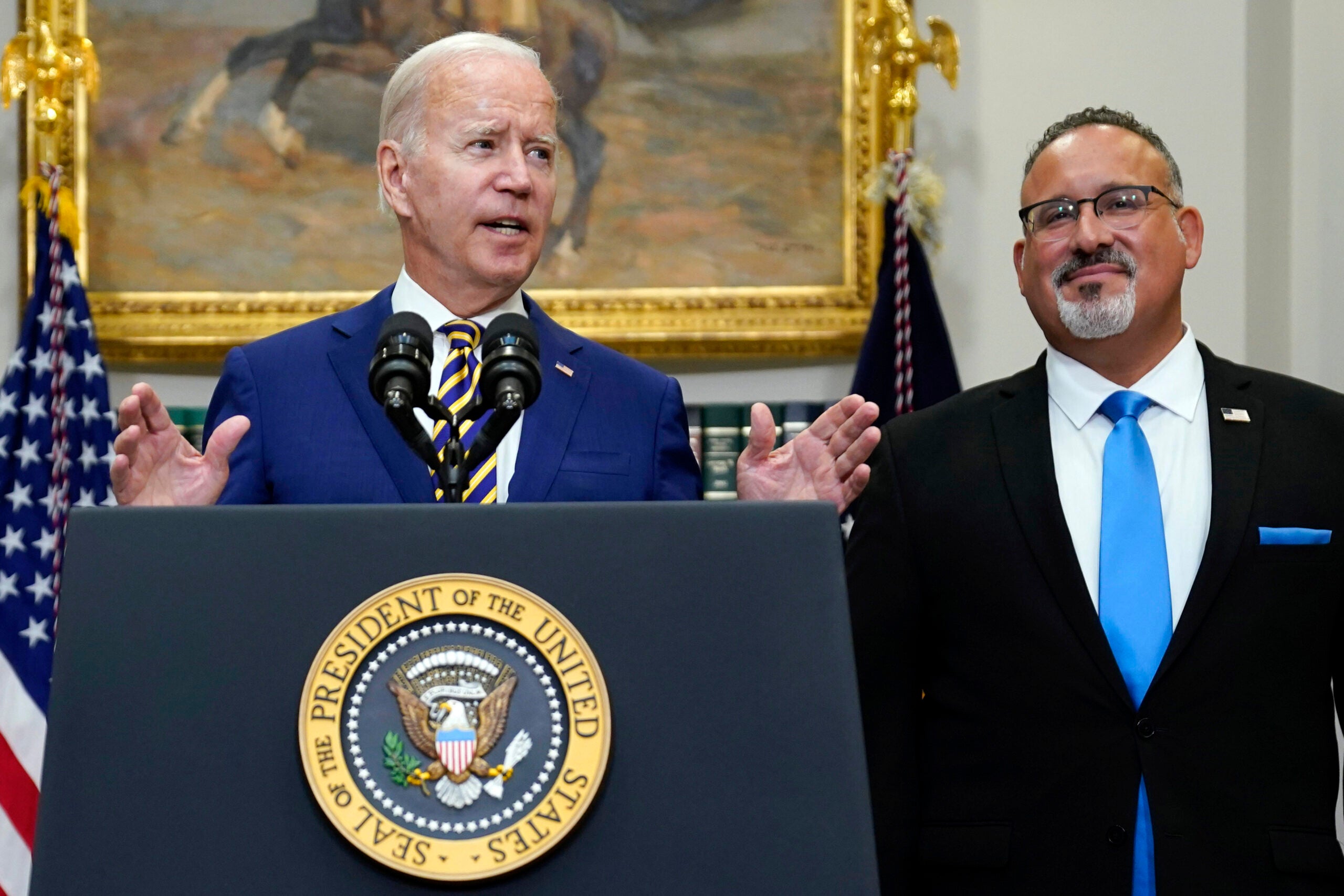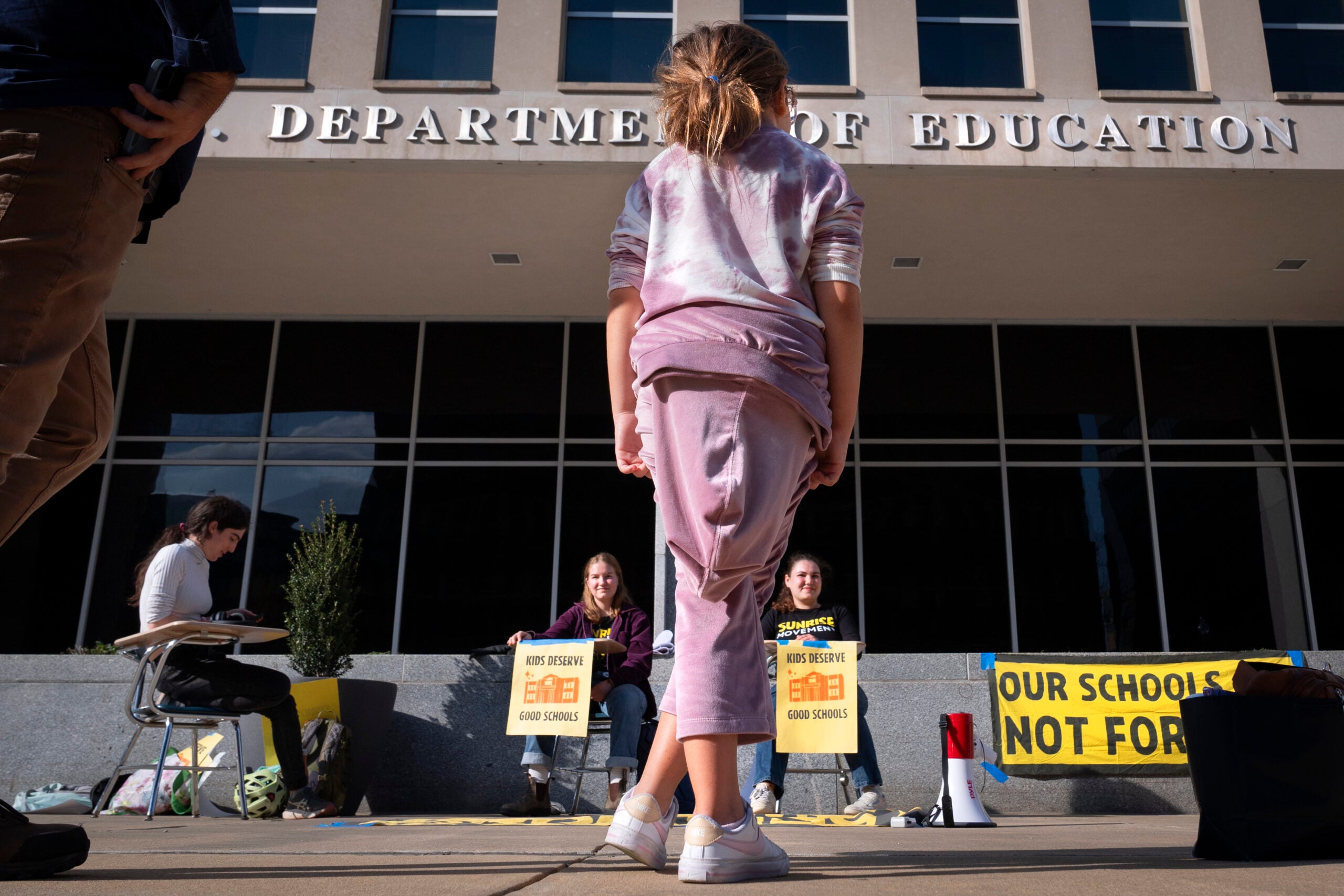A fiscally conservative Wisconsin-based association of taxpayers is the latest group to sue over the Biden administration’s student debt relief plan.
The Brown County Taxpayers Association filed its lawsuit Tuesday in the U.S. District Court for the Eastern District of Wisconsin, arguing the debt forgiveness plan violates the U.S. Constitution.
The group, which is being represented by the conservative Wisconsin Institute for Law and Liberty, is asking a federal judge to grant a preliminary injunction that would stop debt cancelation. It’s also requested a temporary restraining order, which would halt the debt forgiveness program in the meantime before the court decides on the injunction.
News with a little more humanity
WPR’s “Wisconsin Today” newsletter keeps you connected to the state you love without feeling overwhelmed. No paywall. No agenda. No corporate filter.
According to the U.S. Department of Education, it plans to open debt relief applications this month, with a deadline to apply by the end of 2023. Borrowers making less than $125,000 a year would be eligible to have up to $10,000 in federal student loans canceled, while those who received a federal Pell grant available to help low-income families pay for college could have up $20,000 forgiven.
The federal government is already fielding multiple lawsuits over the student debt plan. That includes one from six Republican-controlled states — Arkansas, Iowa, Kansas, Missouri, Nebraska and South Carolina — and another from Arizona’s attorney general.
The basis of the latest lawsuit differs from those already filed, however, because it’s being argued on behalf of taxpayers who are on the hook for paying for the program, said Rick Esenberg, president and general counsel of WILL. The plan could cost about $400 billion over 30 years, according to an estimate from the nonpartisan Congressional Budget Office.
The suit also argues Democratic President Joe Biden and the Department of Education are violating the constitutionally-mandated separation of powers by moving to cancel debt without congressional approval.
“It simply can’t be the case that a president, Republican or Democrat, can create law, can make a spending program out of whole cloth without being called to the carpet and (having) to defend its constitutionality,” Esenberg said.
And the lawsuit contends the plan violates the Constitution’s equal protection clause because White House officials have “articulated an improper racial motive” in crafting the program. There’s no racial criteria that determines who qualifies for the loans, but the lawsuit cites a White House fact sheet that states the plan will “advance racial equality” and help narrow the racial wealth gap because Black borrowers are more likely to borrow for school and to take out larger loans, and because Black students and other students of color are more likely than white students to qualify for income-based Pell grants.
Democratic strategist Scot Ross said that argument from the plaintiffs is “specious” and “horrendous.”
“This is so obnoxious for them to try and claim that the law is somehow the law because there are more student loan borrowers who may be African American, that this is somehow a violation of the equal protection clause,” said Ross, who formerly headed the progressive advocacy group One Wisconsin Now. “The fact is that student loan borrowers are hardworking. They did the right thing. They took on the responsibility for financing their higher education. They are simply asking to be treated fairly in a system that treats them unfairly.”
Additionally, the suit claims Biden’s administration improperly used a federal law called the Higher Education Relief Opportunities for Students Act, or HEROES Act, as a legal basis for forgiving the debt. That law, first passed in the aftermath of the Sept. 11 terrorist attacks, gives the Secretary of Education authority to waive student financial aid rules during times of war or other national emergencies, and both the Trump and Biden administrations have previously cited it in order to pause student loan repayments and interest during the COVID-19 pandemic.
In a statement, a White House spokesperson said the administration acted lawfully to “give working and middle class families breathing room.”
“Republican officials are standing with special interests to try to keep millions of borrowers under mountains of unmanageable student loan debt,” the statement said.
Wisconsin Public Radio, © Copyright 2026, Board of Regents of the University of Wisconsin System and Wisconsin Educational Communications Board.





